In our previous blog post we answered five questions we often get asked about setting up a small business when you’re still employed.
But they were by no means the only questions we get asked. So here are five more things to know if you’re thinking of starting a business and becoming a sole trader when you still work for someone else.
Important note: This information is general in nature, and doesn’t take your particular circumstances into account. So if you’re thinking of setting up a small business, we suggest you discuss the implications with your accountant.
- What bookkeeping system should I use?
Whichever one works best for you. If that’s an exercise book, fine. Just make sure you keep all your receipts, and record your income and expenses regularly.
But once your business takes off you may find your exercise book, or even that well-crafted spreadsheet, is no longer cost-effective—especially if you register for GST. Cloud-based accounting software can make bookkeeping easier by feeding information from bank accounts directly into cost and income accounts. And subscriptions start from just $20 a month.
For more information, talk to your accountant.
- How do I estimate the additional tax I’ll need to pay?
For some people, the fear of having a tax payable debt creates so much anxiety they put off finalising their tax returns. But the sleepless nights are often for nothing, as the actual debt is far less than anticipated.
Your accountant can give you an estimate on how much you should set aside to cover any potential tax debt. Make an appointment early in the financial year so you can find out the final figure as soon as possible. If you use a registered tax agent, you have until the 15th of May the following year to lodge your returns, which gives you plenty of time to save additional funds if you need to.
Remember: You’re setting up your business to make additional income. So think of a tax debt as the government congratulating you for achieving your goal.
- Can I claim my business losses against my employment income?
That depends. If your business satisfies the ATO’s definition of a professional arts business, and your employment income is less than $40,000, then yes. But if you earn $250,000 or more from your employer, then no.You may also be able to claim your business losses if you meet one of four tests. (If you don’t, the loss is rolled over to the following year). One test is whether your business’ annual assessable income reaches $20,000. Another is whether your business has made a profit in three out of the last five years, including the current year.
Once you meet one of these tests, you can deduct any accumulated losses carried forward from previous years from your assessable income.
- Am I eligible for small business concessions?
Yes, providing you satisfy the ATO’s definition of running a business. These concessions include:
- instantly writing off assets costing up to $20,000 (available until 30 June 2017)
- access to simplified depreciation involving business pools.
- Is being a sole trader the best business structure for me?
Setting up your business as a sole trader is both inexpensive and relatively simple. But as it grows, there may come a time when another business structure makes more sense—company, partnership or even a family trust.
Your accountant will be the best person to talk to about which business structure is right for you.
Starting your own business is an exciting adventure. And being employed means you’ll still have an income, which takes the pressure off having to make a profit straight away.
We hope these answers will help you make your new venture a success. And if you need more information, don’t hesitate to get in touch with us.

